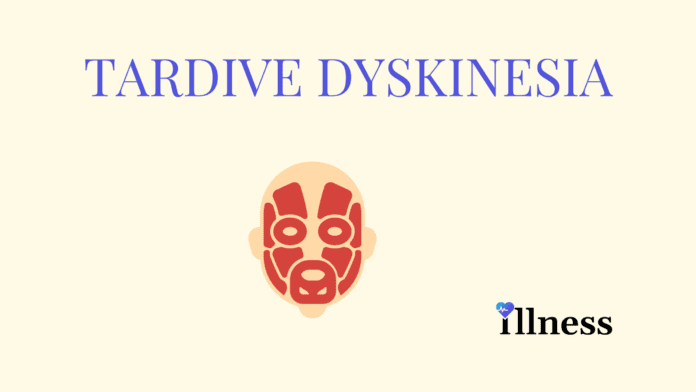Overview Of Tardive Dyskinesia
Tardive dyskinesia (TD) is a neurological movement disorder characterized by a range of different types of involuntary movements. “Tardive” literally means “delayed” and “dyskinesia” means “abnormal movements.” This condition is most often a side effect of certain medications.
Commonly Associated With
Orofacial dyskinesia, Antipsychotic medications, Neuroleptic medications, and Schizophrenia
Causes Of Tardive Dyskinesia
The vast majority of the time tardive dyskinesia is a side effect that occurs with long-term use of medications called neuroleptics, also called antipsychotics or major tranquilizers. These medications are most often used to treat various mental illnesses.
TD will typically onset after several months or years taking the particular medication. However, in some cases it can occur in as little as 6 weeks.
The most common medications associated with TD are typically older antipsychotics, such as:
- Fluphenazine
- Chlorpromazine
- Haloperidol
- Perphenazine
- Thioridazine
- Prochlorperazine
- Trifluoperazine
Newer antipsychotic medications seem less likely to cause TD in patients. However, they are not entirely without risk when it comes to TD.
Additional medications that can also cause TD include:
- Anti-Parkinson medicines such as levodopa
- Metoclopramide (used for treating gastroparesis)
- Antiseizure medicines, such as phenytoin and phenobarbital
- Antidepressants such as fluoxetine, amitriptyline, sertraline, phenelzine, and trazodone
Symptoms
Symptoms of tardive dyskinesia often include uncontrollable movements of the face and body, such as:
- Finger movements (such as piano playing movements)
- Repetitive chewing motions
- Restlessness of various body parts or limbs
- Rapid eye blinking
- Jaw swinging
- Facial grimacing (usually involving the lower facial muscles)
- Rocking or thrusting of the pelvis (then resulting in a duck-like gait)
- Tongue thrusting
Treatment Of Tardive Dyskinesia
The most common treatment for tardive dyskinesia is to discontinue or change the medication causing the condition. If the person’s TD is mild or moderate, or they cannot stop their medication, several different treatment medications could also be an option. The most effective treatment currently available is a dopamine-depleting medication called tetrabenazine.
However, very severe TD may require a procedure called a deep brain stimulation (DBS). This procedure uses a neurostimulator device to deliver electrical signals to the specific areas of the brain in charge of controlling the person’s movements.



